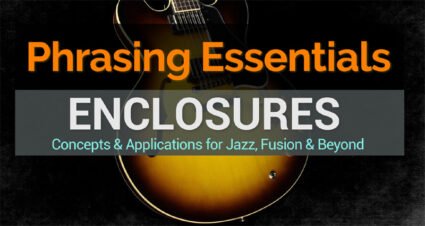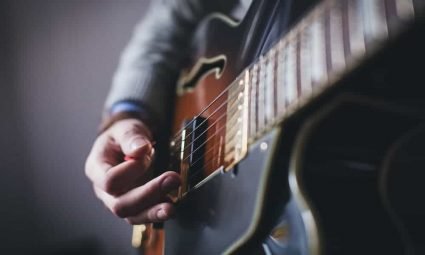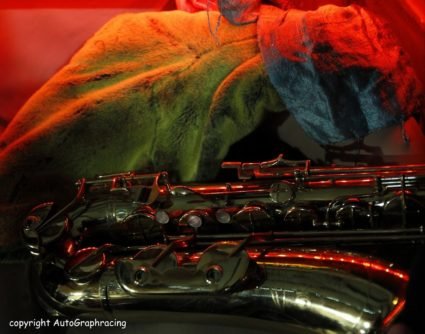
Enclosures can create tension, interest, and a sense of movement in solos. The concept involves surrounding a target note (usually a chord tone) with neighboring notes, both above and below, before resolving to the target note. This can add complexity and chromaticism to the improvisation, contributing to a more sophisticated and unpredictable sound.
The purpose of enclosure is multifaceted:
- Tension and Release: Enclosure introduces dissonance before resolving to a consonant target note. This tension and subsequent release create a dynamic and expressive quality in the music.
- Expressive Phrasing: Enclosure can be used to shape melodic lines in interesting ways. It provides a fluid and connected flow to the improvisation, making the solo more expressive and engaging.
- Chromaticism: Enclosure often involves the use of chromatic passing tones, which are notes outside the diatonic scale of the key. This adds chromaticism to the improvisation, contributing to a more colorful and diverse harmonic palette.
- Creativity and Variation: Jazz is a genre that values creativity and individual expression. Enclosure allows musicians to experiment with different ways of approaching and resolving target notes, promoting variety and innovation in their solos.
- Connecting Chord Changes: When moving between chords, especially in more complex harmonic progressions, enclosure can help smooth the transition between chord tones, making the improvisation sound more connected and seamless.
In summary, the use of enclosure in jazz is a technique that adds nuance, expressiveness, and complexity to improvisation. It is a tool that skilled jazz musicians employ to navigate the harmonic landscape with creativity and flair.




